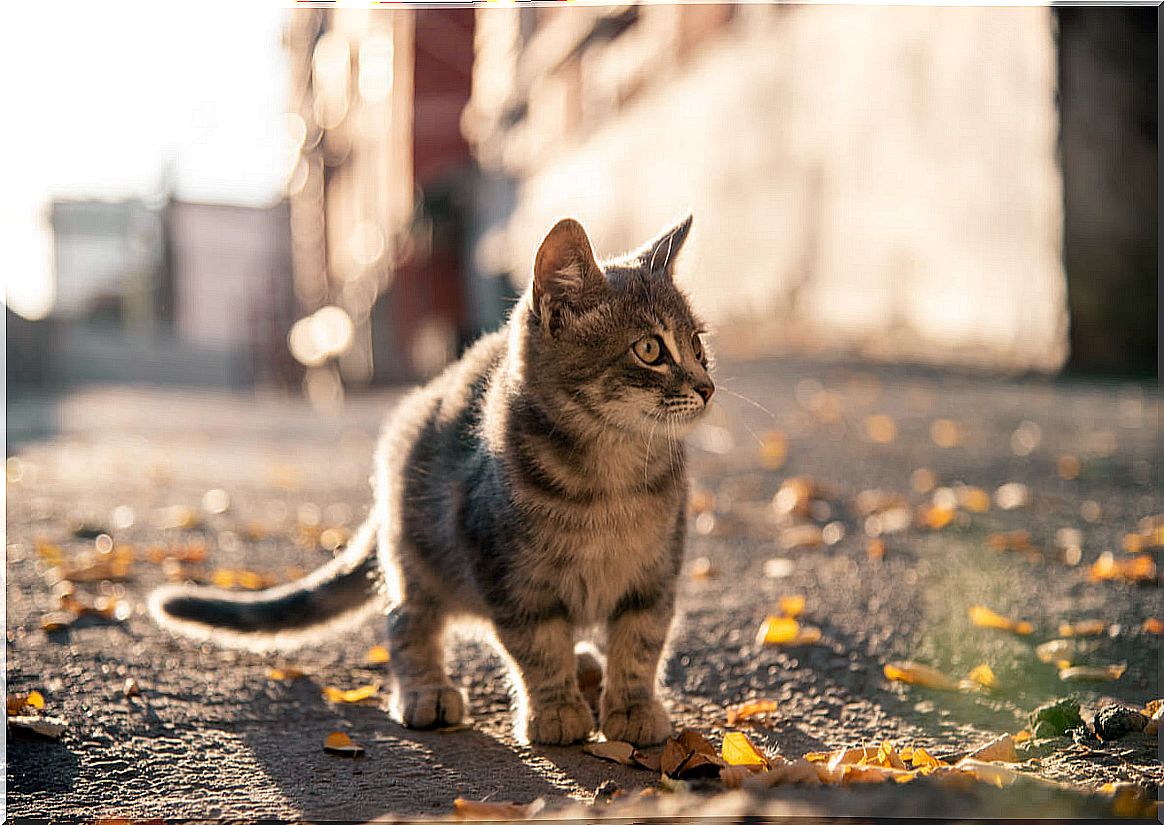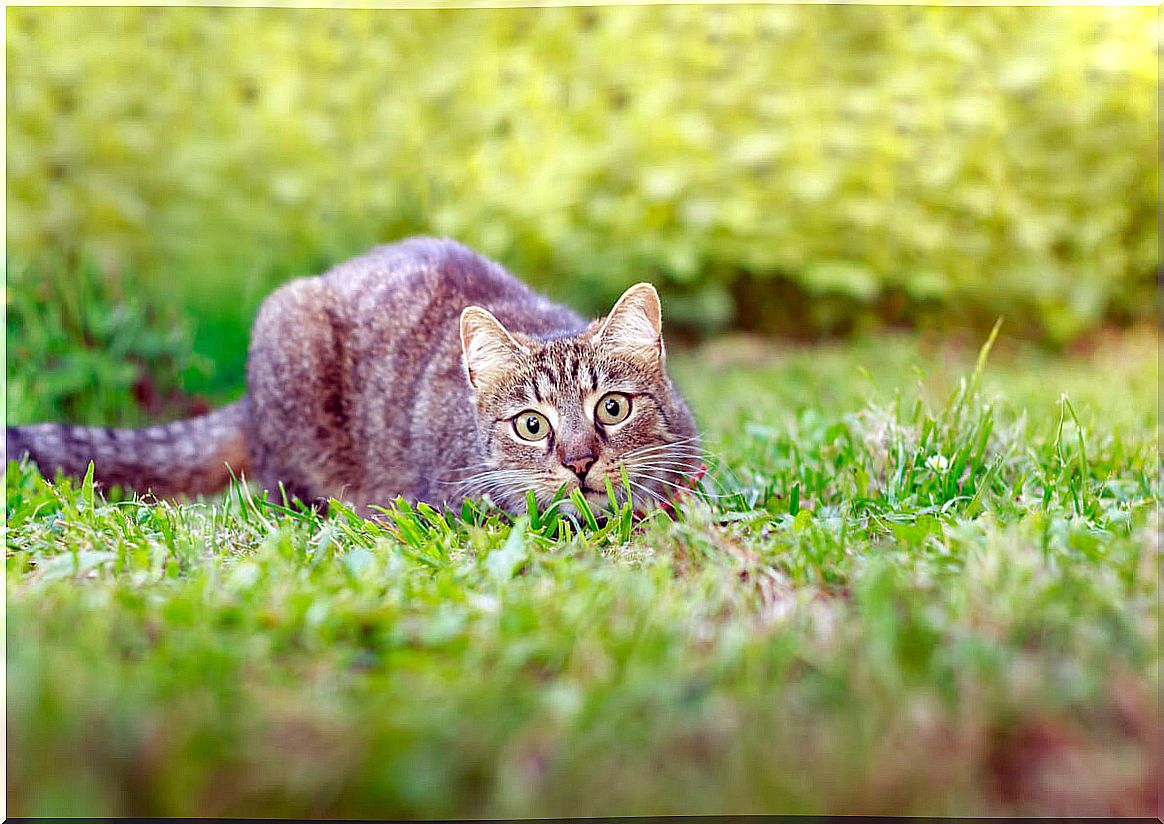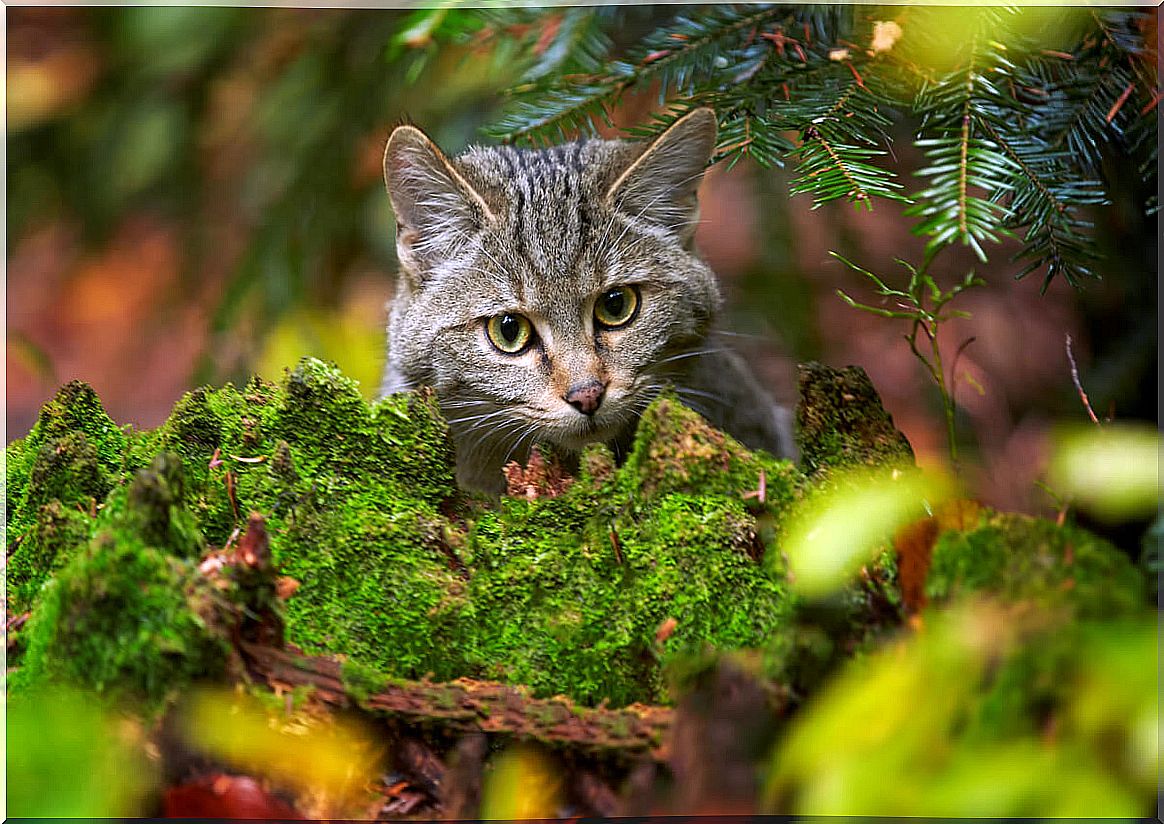Why Do Cats Want To Run Away From Home?

Many cat guardians worry that their pet often runs away from home. This behavior is not something strange and it is usual for the feline to return after a short time outside the home.
Even so, not all cats go outside, as this depends on the character of each animal and other factors. While some cats routinely go outside, others get scared when they cross the threshold of the house.
Why do cats want to run away from home?
There are many reasons that motivate a cat to go outside the home. Some of the main reasons are as follows:
- Expand their territory: cats are territorial animals and they often go out to explore areas they know or seek to expand their range of action. This territory can also be established at home and it is something that should be taken into account when more than one cat lives in the house.
- Hunting instinct: cats are hunting animals and can escape by trying to chase prey. Cats with access to a garden or field area can trap small vertebrates, such as birds and mice.
- External stimuli: Cats are curious beings by nature. Many escapes occur because the animal is scared or chases something that catches its attention.
The problem of hormonal influence
We dedicate our own space to this event, as all domestic felines suffer from it. Cats have a seasonal hormonal cycle, as the two main jealousy in them are in spring and autumn.
The first heat occurs between 6 and 12 months. During this period of time, females can be more affectionate and restless and rub against objects and even mark territory and meow to attract males.
These are times when it is more common for cats to run away from home. Males are not in heat, but they may want to leave the house attracted by pheromones from females in nearby houses — or from stray cats.

The dangers from outside
Although many cats are used to getting in and out of the home, the outdoors can harbor many dangers for a domestic cat. A few examples of this are:
- Run-over: the probability of being run over in the city or on the highway is a real danger for animals that run away from home.
- Fights with stray cats: domestic cats that go outside are susceptible to ending up in confrontations with other felines and ending up badly injured or with certain infections.
- Disease transmission: Contact with other cats can pose a risk of infectious diseases such as toxoplasmosis, ringworm, feline leukemia and many other diseases.
- Other dangers: the ingestion of toxic substances, the attack of dogs or wild animals or not finding the way home are some of the unfortunate events that can happen.
Do cats have to leave the house?
Cats are not the same as dogs, since they do not need to go outside to relieve themselves. Domestic cats use the litter box as the only place for this, but it is important to keep it clean every day or they could relieve themselves outside of it.
With enough exercise and stimulation, cats would not need to go for a walk either, what’s more, it is normal for them to be scared when placing a harness and leash and facing an environment with so many strange stimuli such as the street. Getting a cat used to going out is a process and not all felines will accept it.
However, some cats seem to do well outside the home and enjoy a terrace or garden, especially certain breeds such as the Maine Coon. Of course, this does not mean that a feline of this breed can walk freely on the street. The dangers listed above are still there.
Prevent cats from escaping from home
If your cat has a constant instinct to leave the house and you don’t want to risk any danger, you can take some steps to avoid it. We list a few:
- Put a microchip: the microchip is a guarantee to locate a lost animal. Each chip has a unique number that corresponds to a single animal and its legal representative. If you find a lost animal, you should take it to the nearest vet to check if it has a chip and thus be able to locate its guardian.
- Enrich its environment: to ensure the well-being of any pet, you have to enrich its environment at home and dedicate time to it daily. Scratchers of various heights, toys that encourage their hunting instinct, and even the company of another cat are good stimuli for felines.
- Protect doors and windows: a good acquisition to prevent the animal from escaping are mosquito nets and screens to secure doors and windows. Many people choose to surround their terraces with resistant and durable mesh so that the animal can get out without posing a danger of falls or escapes.
- Sterilize your pet: with castration, behaviors associated with heat such as searching for a mate, marking or aggressiveness are eliminated. In this way, the chances of the cat wanting to escape from home are reduced.

Cats are scouting animals that may want to escape from home for a variety of reasons, even for short periods of time. However, although they always seem to know how to come back, they can find many dangers outside.









